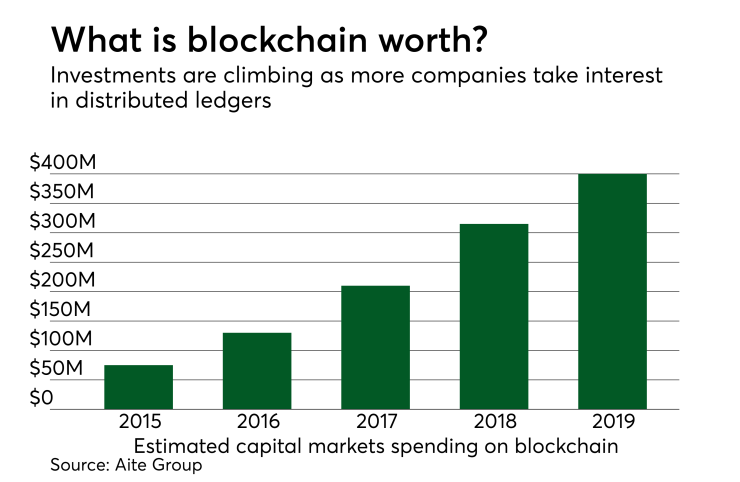Earlier this year Ripple announced that it has dedicated $50 million toward the University Blockchain Research Initiative (UBRI), partnering Ripple with 17 universities around the globe from the U.K. to Brazil, with the aim of accelerating new innovations in blockchain and cryptocurrencies.
Among the main beneficiaries of Ripple's June investment will be University College London’s world leading Centre for Blockchain Technologies (UCL CBT). Executive director Paolo Tasca predicts the research funded by the UBRI will have an array of potential implications for the U.K. payments market, ranging from streamlining existing interbank payments infrastructures to automating regulation and compliance procedures.
Tasca predicts that one of the first major ways in which blockchain technologies can take hold is by improving the efficiency of regulatory reporting through UCL CBT’s Blockchain Technology for Algorithmic Regulation and Compliance (BARAC) project, which will receive an injection of cash through the UBRI.

“We believe this will be one of the most important blockchain finance projects for the U.K. government,” says Tasca. “The idea is to reverse the current regulatory and compliance models, and use blockchain to allow a layer of communication between regulators and banks, so that regulators can automatically fetch data or query the information they need, without having to rely on an intermediary or the bank reporting that information.”
The need arises because at the moment, payments institutions still rely heavily on slow, manual processes for reporting risk data. This hinders the ability of regulators to provide effective analysis and surveillance. However, a blockchain-based system would be far faster and more efficient, as the shared distributed ledger would act as both as an execution platform for transactions, and a means of immutably documenting transactional information, allowing it to be easily accessed in real time.
Following a successful trial collaboration between UCL CBT, R3 and Santander in developing a blockchain-based system for the regulatory reporting of mortgage transactions — a project that launched in September 2017 — Tasca predicts the UBRI is in a position to have a strong impact on the regulation landscape in the coming years.
“We believe this will be very promising and useful for the payments industry, both for law enforcement agencies, the market regulators, and also making things easier from the business side,” Tasca says. “The success of the prototype project with Santander and R3 will aid this. I believe a market implementation of that is already in the pipeline.”
But the potential impact of the UBRI stretches far beyond regulation. Researchers hope that the initiatives being funded could pave the way for customized blockchain systems to replace cross-border payments systems such as the
“This type of technology could be enormously beneficial for the end users,” Tasca says. “It is way superior to Swift, in terms of transactions per second and cost per transaction. In the years to come I think we are going to see an expansion in competition from different blockchain protocols.”
While protocols such as Stellar, and even Ripple itself, have previously been proposed as potential replacements for Swift, those exact configurations may themselves not be practical. In particular, Tasca suspects that to achieve a scalable, cheap blockchain-based payments system that can be used and trusted by all major financial institutions, it would have to be centralized. As such, many of the UBRI projects are dedicated to designing and simulating different blockchain configurations, to find the optimal configuration for different payments infrastructures.
“We have to map the levels of risk under all kinds of conditions for each of these blockchains, because this hasn’t really been done before,” Tasca says. “And so that involves looking at many different network topologies, consensus mechanisms, confirmation time delays, and seeing how we can maintain how quickly a payment arrives from A to B while minimizing risk both at the performance and security levels.”
At the same time, Tasca hopes that UBRI will help tackle two of the key hurdles, legal uncertainty and lack of interpretability, which he says have hindered the uptake of blockchain-based solutions by major players in the payments industry so far. In particular, if one system is designed to run on a particular blockchain protocol, it’s currently very difficult to interface that system with another that runs on a completely different blockchain.
“These interpretability challenges have made the industry wary so far, as they increase the development costs of implementing a blockchain system as well as increasing the risk for the end users and the company,” Tasca says. “So to encourage the use of these technologies, we’ll be doing a lot of work with respect to standardization of blockchains. In addition, surveys have found that the biggest hurdles preventing the proliferation of blockchains in finance have been the legal uncertainty. The actual business and technical challenges are secondary to that. There’s been very little done so far on the legal aspects of this, but we have a lot of legal researchers at the UCL CBT, and so this is something we will be looking at very closely in the coming years.”




